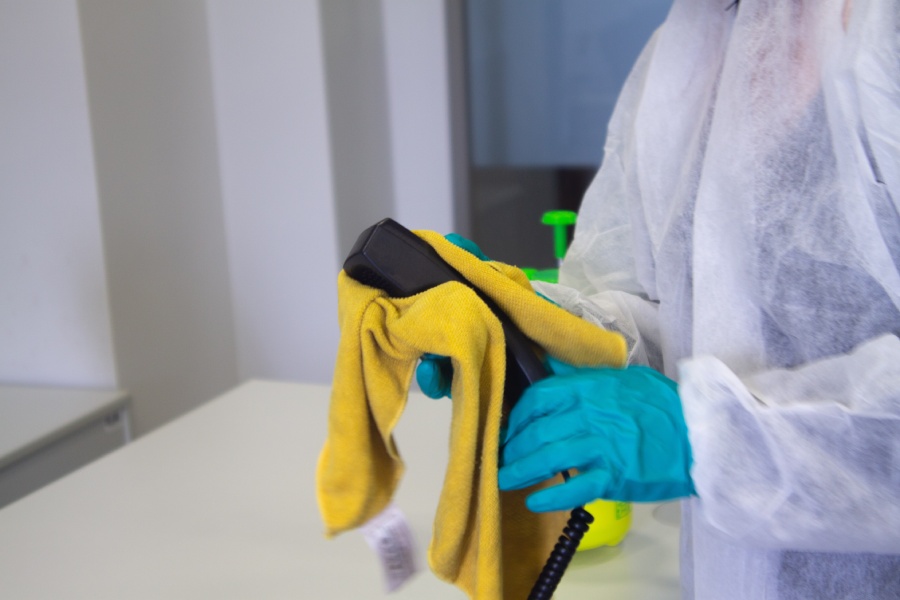
Importance of Cleaning in Industries
Cleanliness in the industrial sector is far more than an aesthetic choice; it is a foundational pillar for operational success. It impacts efficiency, safety, equipment lifespan, and employee health while ensuring compliance with industry regulations. Without proper cleaning and maintenance, industrial facilities risk frequent breakdowns, safety hazards, and non-compliance penalties.
Enhancing Operational Efficiency
A clean industrial environment allows machinery to operate without interruptions caused by debris, dust, or grease buildup. Components such as conveyor belts, motors, and assembly lines require routine cleaning to avoid disruptions. When cleaning becomes part of the operational schedule, productivity soars because equipment runs smoothly and efficiently.
Ensuring Employee Safety
The health of employees is paramount, as industrial sites often expose workers to hazardous materials like dust, chemicals, and fumes. Regular cleaning minimizes these exposures, ensuring healthier working conditions. Additionally, clean floors and surfaces reduce the likelihood of workplace injuries due to slips or trips.
Prolonging Equipment Lifespan
Industrial machinery represents a significant investment. Neglecting cleaning leads to dirt buildup in components like filters, gears, and motors, accelerating wear and tear. Implementing a comprehensive cleaning regimen can extend the operational lifespan of machinery, saving businesses substantial costs in repairs and replacements.
Boosting Employee Morale and Productivity
A clean work environment improves employee morale. Workers feel more motivated and focused in an organized, clutter-free workspace. Time wasted searching for tools or materials decreases, leading to heightened productivity levels.
Regulatory Compliance
Industries are governed by stringent cleanliness and hygiene regulations. Regular cleaning helps businesses avoid fines, shutdowns, or damage to their reputation caused by non-compliance. Staying compliant also ensures the safety of products and enhances trust among customers and partners.
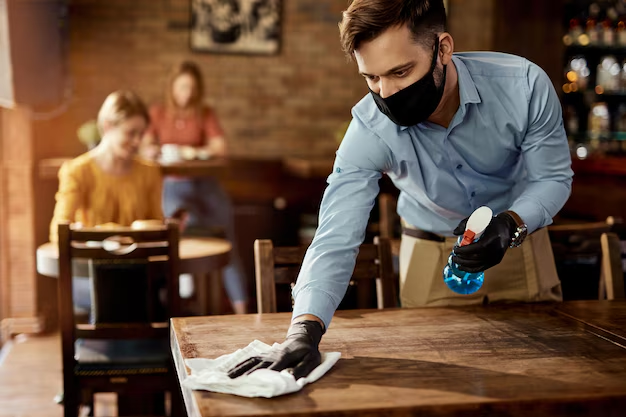
Cleaning in Restaurants and Procedures
Cleanliness in the restaurant industry is far more than an aesthetic requirement; it is essential for health, safety, and customer satisfaction. A clean restaurant not only meets regulatory standards but also ensures smooth operations, preserves food quality, and enhances the dining experience.
Ensuring Food Safety and Hygiene
Maintaining high standards of cleanliness minimizes the risk of food contamination. Proper cleaning of kitchen surfaces, utensils, and storage areas prevents cross-contamination and helps in adhering to food safety regulations. This ensures that customers receive meals prepared in a hygienic environment.
Enhancing Customer Experience
A spotless dining area creates a welcoming atmosphere, encouraging repeat visits and positive reviews. Clean tables, floors, and restrooms reflect professionalism and attention to detail, which are crucial for customer trust and satisfaction.
Prolonging Equipment Lifespan
Kitchen equipment such as ovens, fryers, and refrigerators require routine cleaning to prevent grease buildup and maintain efficiency. Regular maintenance ensures these high-investment tools perform optimally, reducing downtime and repair costs.
Regulatory Compliance
The restaurant industry is governed by strict cleanliness and hygiene laws. Regular cleaning and inspections ensure compliance with these regulations, protecting the business from fines, closures, or reputational damage.
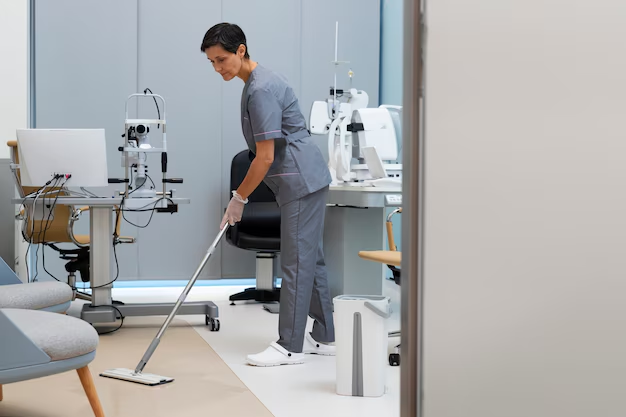
Keeping Hospitals Clean
Cleanliness in healthcare facilities is not just important; it is critical for patient safety, infection control, and operational effectiveness. Hospitals and clinics require stringent cleaning protocols to provide a safe and sanitary environment for patients, staff, and visitors.
Infection Prevention and Control
Regular cleaning and disinfection of hospital surfaces, equipment, and rooms minimize the risk of healthcare-associated infections (HAIs). Proper sterilization of medical instruments and disposal of biohazard waste are fundamental in maintaining a safe environment.
Protecting Patient and Staff Health
Hospitals expose individuals to various pathogens. Effective cleaning reduces the spread of viruses and bacteria, safeguarding the health of patients and healthcare workers alike. This ensures faster recovery rates and a healthier workforce.
Maintaining a Professional Image
A clean and organized facility reassures patients and visitors, reflecting the hospital’s commitment to quality care. Dirty or cluttered environments can harm the institution’s reputation and deter patients.
Regulatory Compliance
Hospitals must adhere to strict health and sanitation guidelines. Regular cleaning audits and compliance checks are essential to avoid penalties, maintain operational licenses, and uphold accreditation standards.
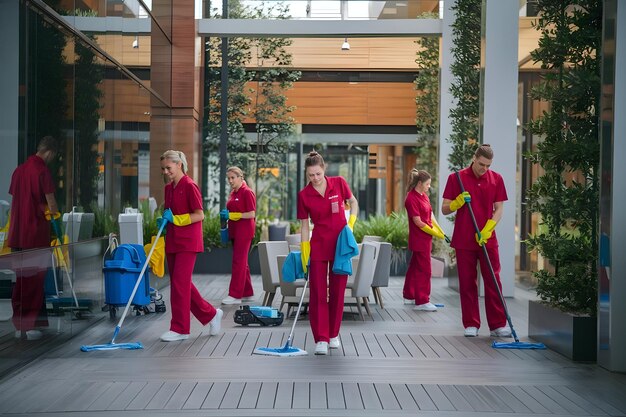
Cleaning Importance in Business Properties like Large Malls and Shopping Centers
Cleanliness in large commercial spaces like malls and shopping centers is a key factor in enhancing visitor experience, ensuring safety, and maintaining property value. With high foot traffic, these spaces require consistent and efficient cleaning protocols.
Creating a Positive Visitor Experience
Shiny floors, clean restrooms, and well-maintained common areas create a welcoming environment that encourages longer visits and increased spending. A clean mall reflects professionalism and attracts more customers.
Ensuring Safety
Slip-and-fall incidents are common in areas with high foot traffic. Regular cleaning and maintenance of floors, escalators, and elevators reduce such risks, ensuring the safety of visitors and staff.
Preserving Property Value
Routine cleaning and maintenance prevent wear and tear on surfaces, fixtures, and infrastructure. This helps in maintaining the aesthetic appeal and functionality of the property, preserving its long-term value.
Compliance with Regulations
Shopping centers must adhere to health and safety regulations, particularly in food courts and restrooms. Proper cleaning practices ensure compliance, avoiding legal complications and protecting the reputation of the property management.

 Evochem
Evochem 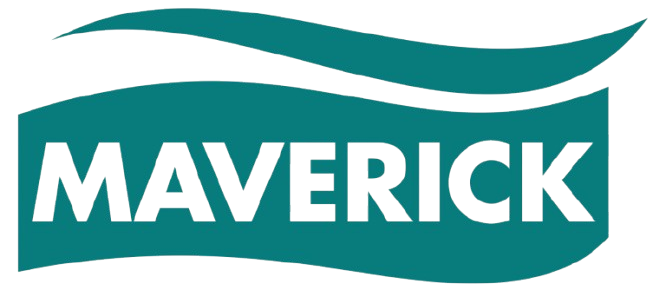 Maverick
Maverick Hygex
Hygex